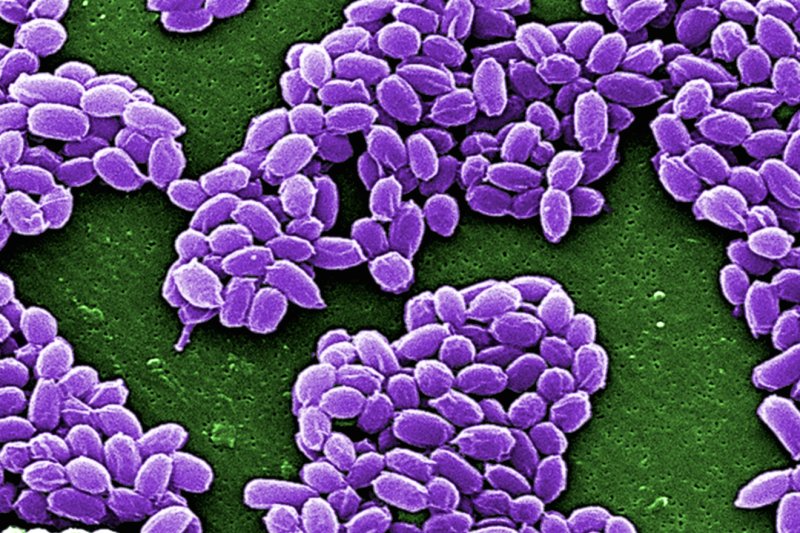A Pentagon investigation identified inadequate killing and testing of live anthrax among the causes of live spores being distributed to labs across the U.S. Under a high magnification of 12,483X, this scanning electron micrograph (SEM) depicted spores from the Sterne strain of Bacillus anthracis bacteria, or anthrax. Image courtesy: CDC.
WASHINGTON, July 24 (UPI) -- A Pentagon investigation identified inadequate killing and testing of live anthrax among the causes of live spores being distributed to 183 labs across the United States and abroad, considered the largest anthrax breach in history.
Pentagon officials said the lab did not conducted significant testing and irradiation of samples, but said there was no criminal or malicious intent behind the shipments from the Dugway Proving Ground in Utah.
"Dugway followed the procedures that were in place, as far as we know," Deputy Defense Secretary Bob Work said. "What happened was the procedures were the primary culprit."
The Pentagon report said there was a "systemic ... lack of specific standards" in the preparation and transport of the pathogen.
Dugway, the nation's largest producer of inactive anthrax for biodefense research, did less testing than other Defense Department labs to ensure the specimens were dead before shipment to defense contractors, universities and government labs, the report said. After using radiation on a batches of anthrax, scientists tested just 5 percent to ensure it could not grow. The small sample size, coupled with short incubation periods, "may have resulted in a viability testing protocol that is prone to error," the report said.
Live anthrax samples were sent from Dugway to 86 commercial, academic and federal labs in the United States and seven other countries: Japan, United Kingdom, South Korea, Australia, Canada, Italy and Germany. There were no connected illnesses, but at least 21 people who had direct contact with the spores were treated with antibiotics as a precaution.
The Pentagon review found no other military labs involved in anthrax research appear to have shipped live spores. Unlike at Dugway, staff at other facilities were able to identify when live anthrax was present in irradiated samples.
"We are shocked by these failures," Work said. "I want to stress to you that DOD takes full responsibility for these failures."
A House Energy and Commerce Committee investigations subcommittee has scheduled a hearing for July 28 to look at the effectiveness of federal oversight of federal labs handing such pathogens.
Work said the Army is further investigating to determine if anyone should be held responsible at Dugway for the failures.















